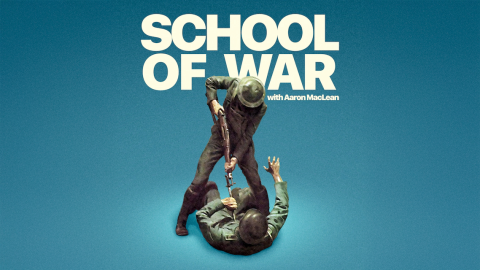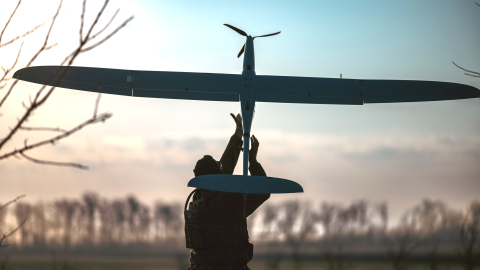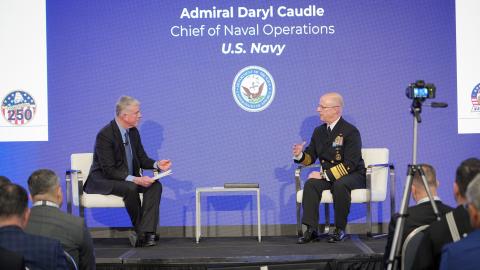
The Future of US Foreign Policy in the Middle East with Senator James Risch
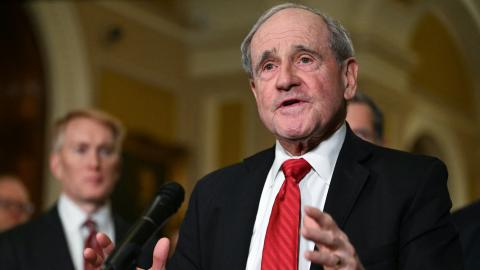
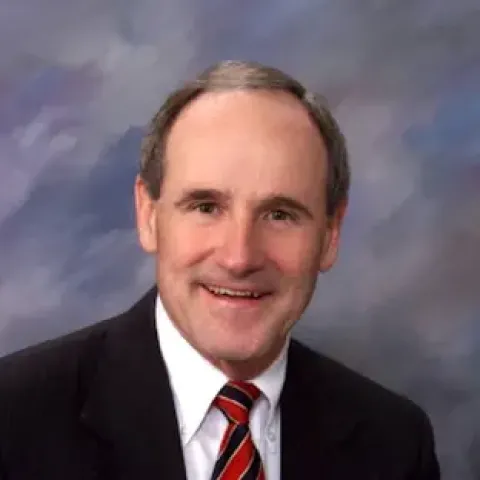
United States Senator, Idaho

Senior Fellow and Director, Center for Peace and Security in the Middle East
Michael Doran is a senior fellow and director of the Center for Peace and Security in the Middle East at Hudson Institute.

President and CEO
John P. Walters is president and chief executive officer of Hudson Institute.
The Trump administration finds itself with an array of foreign policy opportunities thanks to strategic shifts in the Middle East, in large part due to Israel’s efforts to prevent Iran from acquiring a nuclear weapon and eliminate Iran’s proxy network, leading to new leadership in Lebanon and Syria. But other actors, including China and Russia, also seek to capitalize on the changing landscape in the region to undermine American interests.
Michael Doran, director of Hudson’s Center for Peace and Security in the Middle East, will join Senator James Risch (R-ID), chairman of the Senate Foreign Relations Committee, to examine opportunities, risks, and questions for the future of American foreign policy in the Middle East.
Episode Transcript
This transcription is automatically generated and edited lightly for accuracy. Please excuse any errors.
John Walters:
Welcome to Hudson Institute. I’m John Walters, Hudson’s president and CEO. We could not be happier and I could not be more honored than to have Senator Jim Risch here to talk about foreign policy, talk about the priorities he sees for our country on the front lines of policymaking and guidance in the United States Senate. He and I did a conversation last year on occasion of the NATO Summit when he released a national security strategy to try to give some additional background and sense to the needs of the United States, excellent document, and now he’s in a position to do the work that he outlined at that time. The current threat environment requires strategic clarity, principled action, and staying power from the United States and its allies. Senator Risch of Iowa, excuse me, Idaho, I can put you in the wrong state there, Senator, as I said, is chairman of the Senate Foreign Relations Committees, but he understands these requirements. That’s what’s most important here.
He is one of the key voices in shaping American foreign policy and he has been a steadfast advocate for stronger NATO support for Ukraine against Russian aggression, rallying allies to meet the Chinese challenge. He has also led efforts to advance more secure and critical mineral supply chains, resilient energy infrastructure, and strong trade frameworks. He has consistently supported the President’s America first approach while standing for an assertive and engaged global leadership by the United States. Turning to the Middle East where his thoughtful policy assessments have helped to lead efforts to support Israel, oppose a nuclear Iran, counter Russian influence, and approaching Syria and Lebanon prudently to strengthen key partnerships. As I said, it is my honor to be able to introduce him. He is going to make some opening remarks. Then he’s going to engage in conversation with my colleague Dr. Michael Doran, senior fellow and director of our Center for Peace and Security in the Middle East. Senator, to the floor is yours.
James Risch:
Well, thank you very much, kind remarks and I think your introduction, talking about how important clarity is when setting policy, I think, is critically important and it’s important for everyone to know where the other side or for that matter your allies are coming from. Thus, here we are today to talk about policy and the policy of the United States and what we can do particularly in the Middle East. I want to thank you and thank you to Mike Doran and the wonderful staff at Hudson for having me. I always enjoy my time here. Today, I want to focus on the Middle East, a region experiencing a historic amount of upheaval, perhaps the most we’ve seen since the Arab Spring. At this critical juncture, long-held policy assumptions have been totally disrupted. There is a real opportunity for progress and peace in a region that was once dominated by the oppression of the Iranian regime.
President Trump’s recent trip to the Middle East highlighted the commitment of our partners to work with the United States to protect our collective defense, boost our economies and counter adversaries like Russia, China, and most consequentially there, Iran. The region is changing and has changed greatly in recent years. Of course, I’d be remiss if I didn’t mention that all of this change came at a steep, steep cost. The world was turned on its head by the Hamas brutal and unprovoked October 7 terror attack on Israel. This moment of unfathomable brutality made clear that the vacuum created by the Biden administration’s disastrous withdrawal from the region and attempts to rejoin the Iran nuclear deal at any cost were very dangerous for the free world. Sadly, due to the Biden administration’s excessive handwringing and fear of escalation following October 7, Israel had to take its security into its own hands. Let me be clear, we are in this position because Israel disregarded the demands of Biden’s team and fought for itself.
It is thanks to the bravery of the Israeli people and the decisive leadership of Prime Minister Netanyahu that Israel has made the impossible possible. Iran’s ring of fire, which had encircled Israel and others in the Middle East with terror, proxies and instability for decades now lies in ruins. Hamas is on its deathbed, the crown jewel of Tehran’s terror groups, Hezbollah, is in tatters. Israel has taken Iran to task, and Iran is at the weakest point it has been in decades. If we and our Middle Eastern partners play our cards right, a new path of dignity and stability could unfold from the ruins of the terror and tyranny of Iran. Syria and Lebanon are the focal point of these new possibilities, and there is the real possibility there will be others. Israel has done the hard work to create this opportunity. Now it is time for the United States to work with responsible partners in the region to find a better path towards a safer Middle East and ultimately, a more secure America.
The fall of the brutal dictator, Assad, gives the Syrian people a real shot at building an inclusive country that represents its diverse background and diminishes the presence of Iran. President Trump’s recent decision to waive Caesar sanctions will allow an influx of investment into Syria countering the potential for Iran or Russia to wield their influence and attempt to fill the vacuum that exists now, but we need to proceed with caution. Syria’s interim leader, al-Sharaa has rebranded himself as a moderate, but he’s worked for some of the most violent terror groups in the Middle East. It is my sincere hope that this is the past for al-Sharaa and for Syria, but there are conditions that I believe must be met or the administration should consider reimposing the sanctions that have now been lifted.
We need evidence that the interim government will not allow Syria to be a launch pad for terror attacks against the United States. This means we need Syria’s full cooperation in the fight against the Islamic State to ensure this transitional period does not open the door for prison breaks or territorial gains by terrorists, particularly in the northeast of the country. On the surface, Syria has said it agrees with us. Additionally, accountability and elimination of the Assad regime’s chemical weapon stockpiles must be a priority. Al-Sharaa has taken steps to allow international monitors access to the country, but now he must demonstrate the weapons Assad used against his own people are indeed eliminated. Russia and Iran must also be permanently ejected from Syria. The region cannot tolerate Moscow having access to the Mediterranean to threaten the United States, NATO, or other allies. Russia and Iran were complicit in Assad’s atrocities. If we allow Russia to remain in Syria, it’s only a matter of time until it becomes a back door for Iran to return. Again, on the surface, Syria says it agrees with us.
Further Assad’s methamphetamine empire with its sprawling infrastructure and mountains of drugs that fueled corruption and instability must be destroyed. Finally, the Al-Sharaa government must account for American citizens detained by the Assad regime including Austin Tice. I’m glad to see cooperation with the new regime on this front, but America can’t rest until all of our citizens are returned home. I see tremendous opportunity for Syria. Syria was historically and can again be a great and respected country. However, we need to ensure that with increased cooperation comes greater security for the American people. Next door in Lebanon, we are at a critical moment also. The Lebanese people finally have an opportunity to break Iran’s stranglehold on Beirut. Their new government represents the best opportunity to restore Lebanese sovereignty and deliver a prosperous future for its people. But like Syria, there are conditions that must be met before we are fully supportive.
Lebanon faces a long uphill battle to dig itself out of debt, but its people are resilient. The new government needs to implement financial reforms recommended by the IMF to show legitimacy on the world stage and get back on track to serve its people. Additionally, undermining the legitimate government engaging in corruption and providing space for Hezbollah cannot be tolerated. Nabih Berri, Lebanon’s parliamentary speaker, has an opportunity to play a leading role in this new chapter or be associated with the failures of the past. I hope he chooses what is best for the Lebanese people. However, like President Aoun, he has shown great potential over the years. The government also needs to maintain control of customs, the airport and routes in and out of the country to ensure Hezbollah continues to wither under a lack of resources. Lastly, Lebanon must uphold its ceasefire requirements with Israel. The Lebanese Armed Forces are the only legitimate security guarantor for their people. Any hesitancy to meet the threats posed by Hezbollah would be deeply troubling and force the United States to reevaluate providing much needed support for the military.
Despite progress made, the Middle East continues to present challenges and risks falling back into its old ways. Iran’s influence may be waning, but its roots still run deep and the tide could turn against progress in the region. The hostilities in Gaza continue. Baghdad must work to disarm Iranian-backed militia and the futures of Syria and Lebanon still hang in the balance. Capitalizing on this moment will take serious effort from those in the region who are committed to peace and prosperity. Fortunately, there are many today in the region who want exactly that. Pushing back on malign influence from Russia and China will continue to be a challenge. Where one malign actor gets ousted, another could follow. Still, just think of where we stood one year ago and how far we’ve come since then.
Under President Trump’s leadership, we’ve seen real progress, strong alliances, tangible results and cooperation with our partners in the Middle East. I’m confident that if we continue to push for America’s best interests while supporting countries as they fight Iran’s influence, we will look back a year from now on a middle that’s even more stable and in America that’s even more secure. Thanks so much for having me here today.
Michael Doran:
Senator Risch, thank you very much. That was a very optimistic speech.
James Risch:
Let me tell you my reason for that. That is a very legitimate, even modestly criticism.
Michael Doran:
No, I didn’t mean it as a criticism. I actually agree with you.
James Risch:
I’ve seen tremendous change in the Middle East since I’ve been doing this. If you look at where we are today, the fact of the matter is we’re down to one bad actor. And you say, well, what about the three Hs? Hamas, Hezbollah and Houthis, they’re all Iran. They’re all proxies of Iran. If Iran was gone, the three Hs would be gone. So, we’re down to one bad actor really in the region. I think people will look back at this point in history and see that there was a turning point, and I believe that turning point was when the Abraham Accords were signed. Once those Abraham Accords were signed, it was a signal to the world that the Arab population was sick and tired of what Iran has been handing out and decided to go a different direction. You have to give President Trump a tremendous credit for what was done there.
There’s no doubt that what happened on October 7, one of the precipitating factors was it was a very not well-kept secret that Saudi Arabia was looking to normalize relationships with Israel and Iran just couldn’t stand that and thus pulled the trigger on October 7. And people say, well, can you give us a piece of evidence that points to this? There’s a critical piece of evidence that gets almost no publicity at all, but you remember during this war with Hamas, Iran decided that it was going to attack Israel directly, which was not something that it had done. They launched 300 missiles and rockets at Israel, none of which landed. But importantly, the reason they didn’t land was because number one, Israel has a really good overhead system that we helped them develop, but also, you had people flying against those. You had the Israelis themselves who were very good. You had the United States, which is very, very good. You had the Brits and the French all flying against this, but that’s not the big story.
The big story is there were two Arab countries flying to protect Israel from Iran. Saudi Arabia and Jordan flew against that attack by Iran. If that would’ve happened 10 years ago, it would’ve resulted in an eruption in the Middle East and here you had Arab countries defending Israel. That’s a huge change, huge change.
Michael Doran:
I absolutely agree with you. I didn’t mean to sound like I was being critical.
James Risch:
No.
Michael Doran:
It just that I am always wrestling with it in my mind because for the first time since I’ve been working on the Middle East, I can imagine a Middle East where we have breakfast in Beirut, fly to Tel Aviv for lunch, go to Riyadh for dinner, and then party the night away in Tehran. Okay, I took it further than you wanted it but we can-
James Risch:
My vision isn’t quite that good.
Michael Doran:
Yeah. It’s a flight of fancy right now, but there’s enough going on where you can see because all of the leaders in the region, with the exception of Khamenei, they just want to build their economies and develop their countries and have peace and stability.
James Risch:
And have a better country for their people, for their kids. They look at what the West has and they say, you know what? This is what I want my kids . . . I want the opportunity for my kids.
Michael Doran:
You can see that everywhere. In Saudi Arabia also, the change has been enormous. When Mohammed bin Salman moved in that direction, the whole population was . . . He opened the door, everyone ran through in that direction. Let’s talk a little bit about the bad actor that remains, Iran. Actually, before we do that, let’s pan out a little bit and then come in. I take it from your remarks and other things that you’ve said that you share what I think is basically a Hudson Institute view. We don’t have an institutional view here, but I think everyone here tends to see the international relations today as the United States and its allies against China, Russia, Iran, and North Korea, and we see Iran in the Middle East as the arm of that coalition. Is that pretty much how you see it?
James Risch:
Yeah. I’d state it a little differently than that, and it’s broader than the Middle East. I see the world gravitating to a very much clear bipolar place. On the one side, you have the democracies like ourselves and semi-democracies who believe in human rights, who believe in capitalism, who believe in free markets, who believe the importance of the individual over the importance of the state. You have that on one side. On the other side, you have the democracies that you’ve outlined, and that’s Russia, China, North Korea, Iran, Venezuela, Cuba, and a handful of others that are trending in that direction who have no use for human rights, have no use for capitalism, have no use for the things and the values that we have. And I really see a challenge in the twenty-first century of how when you have these two polar opposites, how we can all occupy the planet at the same time without killing each other because look, we’re not going to change. Our values are not going to change.
The other side’s values are not going to change. There’s hope somewhat for Iran simply because of the demographics there with 70 percent of the population being 35 years old or younger and want nothing to do with what their government is offering them. Other than that, you’re not going to change Russia, you’re not going to change China, and you’re certainly not going to change North Korea. So, I really think that the challenge is we’ve got to figure out how to get along. And we can, if people don’t do really, really dumb things like starting a medieval war in the twenty-first century like Russia has done,
Michael Doran:
In terms of the contest between Beijing and Washington, the competition, how do you see the Middle East in that competition? You see it as very, very important, somewhat important?
James Risch:
I see it as important. There’s no question, China, everybody puts China and Russia in the same basket and they really aren’t. China certainly has a lot of underlying things that they do, like their slavery of the Uyghurs and things like that, but they are really focused on economics. Putin doesn’t seem to be focused on economics at all. He cares less about the suffering of his country, but that’s the way Russia’s been for centuries. They fought wars, they tolerate, they seem to thrive on the adversities of life as opposed to wanting what we have. But in any event, both of them have designs on the Middle East. They want to have influence wherever they can have influence, so they’re important.
Having said that, they themselves have changed their focus, especially Russia. If it hadn’t been for Russia changing its focus to Ukraine, I don’t think we’d have going on in Syria what we have going on in Syria. They had to walk away from Syria and they opened the door and the Syrian people who are a strong people and who’ve been a historically great country took advantage of that and blessed them for doing that.
Michael Doran:
I was struck by how much emphasis you put in your remarks on Syria. We here regard it as really a strategic priority of the United States in the Middle East because it’s the area where the new order that you’re describing is really being adjudicated. I think that’s pretty much the way you see it.
James Risch:
Yeah, I do. I really do. I don’t think Americans have a tendency to think of Syria and Lebanon as being keystones in a peaceful and prosperous Middle East, I do. First of all, I think you have to look back in history. These are two countries that are biblical, way back. And the other interesting thing when you study those countries, we in America always pride ourselves with the fact that I think there’s more religions practiced in the United States than anywhere else in the world, but Syria, if you talk to the Syrian people and I meet with the diaspora frequently and there is every religious persuasion sitting around the table. You don’t get that in a lot of Middle Eastern countries, but both of these countries, I think if they get their feet under them, I think if they get stability, they can be part of a rebuilding and a new Middle East that we all hope that we see in our lifetime.
Michael Doran:
That’s one of the reasons why I am cautiously optimistic about Sharaa is that my hope for him is that he will end up being a Syrian leader and not an extreme Islamist. I know he comes from there, I don’t want to minimize that, but I think he’s showing himself to be a very clever guy and understanding that he has to balance a lot of different attitudes.
James Risch:
I actually share your view on that. We all celebrated on December the eighth when Assad had to get on a plane and flee to Moscow. We all celebrated until we said, “Wait a minute, who are these guys that did this?” And then you look him up real quick and go, whoa. He sure has a horrible past. Two things in his defense are it has been a long time ago. And secondly, he was affiliated closely with the organizations that we don’t want them to be affiliated with, and he cut the cord with them knowing full well what they were and what they stood for. The third point I would make is something that you just said, and that is immediately, he started saying the right things.
But on top of that, he has also not only talked that way, but on the ground, it’s been working like that. Now, they’ve had one incident, but I think it’s fairly common knowledge that the investigations that have taken place is it doesn’t have his fingerprints on it, and indeed just the opposite of that, he was very put out on it and did some things about it. Look, I think the guy needs to be given a chance, particularly when he is saying what he’s saying, doing what he’s doing. I can tell you that I meet . . . In fact, one of the last meetings I had before I came here with some of the Israelis, they do not share our view completely in that regard, and I do meet them in the middle with this.
I was the guy who sponsored the Caesar sanctions that put the sanctions on Syria in the first place. I led the charge to ease the sanctions, and I continue to think we should continue to ease those sanctions, but I think we need to continue to wait and see. But it’s been quite a while since December 8 as these things go and we haven’t seen the kinds of things that would trouble us. If we start seeing that it’s going to be time to take a whole new look at this. But right now, I’m still willing to stand by and wait and see. It’s certainly a lot better than it was year ago.
Michael Doran:
Right. We owe you some thanks on the Caesar Act because I think that was actually crucial in bringing Assad down. Obviously, the Israelis hollowing out Hezbollah had a lot to with it.
James Risch:
Yeah, they got a lot of help from Mossad and some of the other organizations, no question about it.
Michael Doran:
Let’s move, if we may, to Iran and to these nuclear talks that are going on. The latest news out today is that the president’s Special Envoy, Steve Witkoff, is suggested to the Iranians, a consortium on an island in the Persian Gulf where all of the countries of the region will enrich uranium so that there won’t be an enrichment facility under the control of the Iranians, but also today, supreme leader Khamenei said that if Donald Trump believes that he’s going to be able to take the enrichment capability away from Iran, he’s got another thing coming. He said that they don’t have a . . . I can’t remember, he used the word damn in there. There’s no damn way, I forget the exact quote, that this is going to happen. What are your feelings about these negotiations about the likelihood of success?
James Risch:
Well, I’m not particularly optimistic. I fought with John Kerry on this tooth and nail. We had heated, heated arguments about it. And one of my primary requirements, one of my primary red lines was no enrichment. If Iran says they want to enrich, they want a bomb, so then there’s nothing to talk about after that. They want to be where they are. Look, life is not going well for Iran right now, and with what’s happening in the neighborhood and the region, yeah, they get along with the Russians and they get along with the Chinese and what have you, but life will not continue to . . . If they don’t make a deal at some point in time, Israel is going to do something about that. I’ve sat across the table from Netanyahu, I don’t know how many times, and he has looked me in the eye and said, “Iran will not have a nuclear weapon.” And you know what? I believe him, and I think that’s a case for the United States to be in the exact same position.
You cannot make an argument that Iran should be able to enrich uranium. You cannot make a case. If they say, well, we want to be like the rest of the world and have a civilian nuclear program, I get that. That’s real easy. We have what’s called the 123 Agreements, and it can be enriched in any of the countries that do that, and it is under very strict controls and they won’t do it themselves. They consider it a matter of pride, enrichment. And they consider it a matter of pride because they want to be able to say, we have the ability to make a nuclear weapon when we want to. No, you don’t. The Israelis will see that you never have a nuclear weapon. That’s what you want. That’s what you’re going to get.
Michael Doran:
I see that as really showing the world that we are going to take away from them this enrichment capability, whether through negotiation or through other means. I see it as really the key to bringing lasting stability to the region. As long as they are able to threaten their neighbors and potentially put the Houthis and others under a nuclear umbrella, all of our allies, they’re going to tend to hedge, hedge toward China, hedge towards Iran, and we really need to send a signal that no, we’re going to have a new Middle East.
James Risch:
Yeah, I don’t think I’d put it exactly in those terms. I think that most countries are looking at Iran as being a failing country right now. I think they believe they’ve got a failing administration, regime in their country. They’re not doing well. When Donald Trump left office the first time, we had them down to under 200,000 barrels a day that they were selling, they’re up now over 2 million barrels a day. Well, we’re bringing it down fairly quickly, but we’re going to get them back down there again. And I’ve been leading the fight to turn the screw as hard as I can on them to do just that because in addition to all the other problems they’ve got, we need to cut the cash flow to where they will continue to have problems. So, they’re really alone on an island right now, and they’re going to have to figure out which way they want to go. If the Iranian people had the opportunity, there’d be a regime change in a heartbeat.
Michael Doran:
Let’s talk a little bit about Israel and Palestinians, but let’s start with, you mentioned Netanyahu before because you’ve led the charge against these ICC arrest warrants that came out against Netanyahu. Can you explain how you see that? Why is it in the American national interest to take that position? I certainly believe it is, but I want to hear your thinking.
James Risch:
Well, first of all, Israel is one of the most reliable allies that we have, and particularly in a region that has in the past been troubled. They’ve been a strong, strong ally of ours. And the more I deal with them, the more you find that their values are the same as our values. What really troubled me with the ICC . . . We are not a member of the ICC, as you know, and other countries are not a member of the ICC. I support an ICC so long as it focuses on prosecuting cases of individuals who come from countries who do not have a robust judicial system and will not themselves prosecute human rights violations.
On the same day the ICC put out the warrant for Netanyahu as allegedly a war criminal, they did the same thing for the Hamas people. Listen, any organization that tries to get moral equivalency between Israel and Hamas should not be in charge of any part of the justice system because there is no justice there. These people that are complaining about what’s happening in Gaza, they say they want to cease fire. I’m all with them. This is so simple. All Hamas has to do is lay down their arms, release the hostages, and this is over. There’ll never be another shot fired. Everything that happens, every civilian that’s killed in Gaza is not at the hands of Israel, it’s at the hand of Hamas, unquestionably. If any of you have the opportunity to see the films from what happened on October the 7, I have a recommendation for you, don’t look at them because you’ll have trouble sleeping at night. What they did was atrocious.
How one human being could do that to other human beings is absolutely beyond me. But then to run back home and defend a war by hiding behind civilians and putting your infrastructure in hospitals, in schools, in mosques and churches, that’s ridiculous. This is how I equivocate this. In my judgment, what Israel has done is what the United States and its allies did in late 1930s. We saw the Nazis as an organization that could not exist on the face of the earth as a military organization, as a political organization, as a cultural organization or anything else. We set out to destroy the Nazis and we did it.
And Israel right now says, if we don’t destroy Hamas, and we just say, okay, let’s have a ceasefire, all you’re going to get is putting this off for the next three years, five years, maybe longer than that, but it’s going to happen again until you get rid of Hamas. And by the way, I have no problem saying this publicly when I meet with the people from the region and people you wouldn’t think ordinarily would say this, they want nothing to do with Hamas. They can’t say it publicly, they’re rooting for Israel. They don’t want Hamas.
Michael Doran:
In the UAE, they do say it publicly.
James Risch:
They don’t want Hamas. They don’t want the Muslim Brotherhood.
Michael Doran:
Yeah, absolutely. All right. One last question for you and then we’ll open it up for questions from the audience. In the Republican Party today, there’s a lot of tension between those who are saying the Middle East doesn’t matter, really, we have to focus on problems at home. We have to focus on East Asia. And it seems to me that you have done a remarkably, how would I say, elegant job of navigating between the traditional American leadership and the spirit of bring them home that’s running through a lot of conservative precincts. Can you just talk a little bit about that, about how you see that?
James Risch:
I don’t consider the two views as mutually exclusive at all. I think certainly, there is a shift towards how important things are here in America. We have some serious problems here in America that need to be addressed. The biggest one, of course, is the national debt that we have that’s running up at a trillion every 150 days. We’re struggling with that up at the other end of Pennsylvania here. That is a huge problem. There’s no question about it. But having said that, we have relationships around the world that are just as important to us for our national security as is our military operations. We need friends, we have to have friends, and there are a lot of people around the world that share our values and share our view of what life should be for human beings, and that we need to maintain that.
So, I don’t think those are mutually exclusive. I don’t think you need to abandon one and pursue the other. I think you can do both at the same time. I think probably, what I’ve said since I started in this business is the United States cannot be the policeman of the world. And I think maybe some of the talk here on the Republican side is an offshoot of that. And we truly can’t. Where I sit, every day, I have people come through. Any country that’s got a problem, any country that’s got a problem says, well, maybe not Greenland, but any country that has a problem says, “We need the United States here to help us resolve this.” And it may be countries that aren’t too red-hot about us, but they want the United States there to help them. I mean, I think that’s a reputation that we have that is a good reputation to have, and one we should prize.
Michael Doran:
Do you think that your constituents share your views? When you talk to your constituents, do you find that they’re arguing with you or with each other, or do you think that that’s a consensus position?
James Risch:
I think it’s a consensus position, although people may take the middle point of that and maybe fall on one side or the other side of the middle point. I do get constituents who say to me, “I don’t understand this in Ukraine. We’re spending all this money in Ukraine, I don’t understand it. Why is that? Why can’t you fix the pothole in front of my house?” And I say, “Well, look, do you know why we’re in Ukraine? Why did we do this? Why did we help Ukraine?” And most people have never heard of the Budapest Agreement. And the Budapest Agreement of course happened on December the 5, 1994. Ronald Reagan had collapsed the Soviet Union, spent his career doing it. He was successful. All the countries got their freedom, most took it. On that day, four countries came out of the Soviet Union with nuclear weapons, Russia, Kazakhstan, Belarus, and Ukraine.
On that day, Ukraine was the second-largest nuclear power on the planet. It was the policy of the United States then, it is the policy of the United States now, and it always has been Republican, Democrat, conservative, liberal, that the less countries that have nuclear weapons and the less nuclear weapons on this planet, the better off human beings are. And so, we sat down on December 5, 1994, and said to the Ukrainians, look, you don’t want these nuclear weapons. Give them up, dismantle them, surrender them and if something happens, we’ll be there for you, and we all signed. Well, they gave up their nuclear weapons, and something happened, so here we are. We can’t turn our back at them.
The way I view that is if we turn our back on Ukrainians and walk away, I worry about what our enemies will think like Xi when he thinks about Taiwan. But you know what I worry about more than that? I worry about what our friends will think about that, the countries that are under our nuclear umbrella, South Korea, Japan, Australia, every other country that’s under our nuclear umbrella, they’re going to look at that and they’re going to say, you know what? The US won’t stand by them, time we got our own nuclear weapons. And that could set off a nuclear race on this planet that would be very, very bad for our species.
Michael Doran:
Right. If we don’t honor the Budapest Agreement, and if we let Iran get a nuclear weapon, then that is the message to everybody, then that’s the-
James Risch:
You’ve got problems. I agree.
Michael Doran:
Okay. Well, thank you. Let’s see. Do we have any questions? Yes, sir. I actually don’t know who you are. You got to wait for a microphone.
Tezcan Inanlar:
Thank you, Senator, for your remarks. Tez John with Rumi Forum.
James Risch:
With who?
Tezcan Inanlar:
With Rumi Forum.
James Risch:
I still didn’t catch it.
Michael Doran:
Rumi Forum.
Tezcan Inanlar:
Rumi Forum here in DC. My question is from US standpoint, what does Turkey play a role in one, rebuilding Syria second, for the stability of the Middle East?
James Risch:
Well, I’m skeptical of Turkey, and I freely admit that it’s the result of my dealings with Erdogan directly. They are supposedly a NATO ally, and I led the charge on bringing Sweden and Finland into NATO, and I had to fight Turkey tooth and nail to accede to that. They brought Hungary with them, and it left a really, really bad taste in my mouth that I still have there. And I discussed this with Erdogan head to head, and it didn’t go well. I’m the one that’s holding up their F-35s that they bought. They’re still here in the United States. I’ve put a hold on them.
I have real reluctance. They should not have done that. And they’re way too close to Russia. They got one foot on each side of the fence, which is not a good thing. As far as their operations, if you would, their dealings in Syria, their relationship with the Kurds could be a really, really serious problem for Syria. Syria has got enough problems as it is. As Turkey attempts to operate, particularly within Syria, and particularly as it relates to the Kurds, that could really complicate that, and I don’t like that. I hope the Turks would stay home, but they want to have influence in Syria, and I’m very cautious about that.
Michael Doran:
Can you wait for the microphone please and tell us who you are?
Audience Member:
My name is Prab, I do Paran Equities, we’re real estate. I’m curious, what role can Eritrea play in dealing with triple H? Eritrea has a pretty robust Army personnel. Per capita-wise, I think they’re third when it comes to the hiring they do. How can Eritrea be a role to play in all these conflicts that they’re pretty close to? Do you have a perspective on that underrated country?
James Risch:
I didn’t understand the question. Where’s my staff?
Michael Doran:
Eritrea.
James Risch:
Oh, and what about, what’s the question on Eritrea?
Audience Member:
They have a pretty robust army. They’re third in per capita–wise when they hire their Army members, they’re pretty close to triple H. What can they do to-
James Risch:
They’re pretty close to what?
Audience Member:
Triple H, Hamas, Hezbollah, the Houthis.
James Risch:
Yeah.
Audience Member:
So, what role do you think they can play in helping us to defeat them or control them to a certain level?
James Risch:
I can’t answer that question. I’m sorry, I just don’t have the background on that. I’m familiar with what you’ve said. Putting those two issues together, I’m sorry I can’t do it. I apologize.
Michael Doran:
We’ve got the question back here. Hopefully, not about Eritrea. No?
Jared Szuba:
Senator, Mr. Doran, thank you for doing this. Really appreciate it. Jared Szuba, with Al-Monitor here. Senator, you mentioned your concerns about obviously the future of Syria as a cornerstone for stability in the region and your skepticism of Turkey. Over the past month, about five weeks, I guess, roughly a quarter of the 2,000 US troops that had been in Syria have slowly drawn down for a ongoing plan consolidation at fewer locations in Northeast Syria. I’m wondering what you make of this plan, which ambassador Tom Barrack said earlier in this week would eventually result in US troops consolidating at a single base in Northeast Syria. I wonder if you could give your assessment of that. Thank you.
James Risch:
Yeah. I hope people don’t make too much of this thinking that we’re in any way pulling back there. That particular region of Syria, which is in the upper Northeast corner, as you know, is a hotbed of activity for ISIS. Right now, we have, I forget what the number is, but it’s several thousand ISIS fighters that are being held in prisons up there. The US backs up the Kurds who are essentially on the front line of holding that. If something happened there and those prisons opened up . . . And it’s kind of a unique situation. You have the prisons and then you have the families of all these people that are in the camps that are by the prisons. If those prisons opened up and ISIS came out of there and went throughout the world, we’d be fighting ISIS in a whole lot of different places, starting with the Sahel and a number of other places. We’d see them in Levant, we’d see them everywhere. It’s critical that we maintain our presence there.
There were military reasons that I can’t talk about here for doing some consolidation that is better security for our people. I can tell you that President Trump is very, very concerned about the security of our men and women that are out in the field. So, I wouldn’t make too much of that. If you said, well, we’re pulling out of there, you ought to make something out of that. That’s not what we’re doing, and that would not be a good thing. But look, we are doing well right there with what we have. And yeah, the men and women out there are at risk to a degree, but because of where ISIS is concentrated, we need to be there.
Michael Doran:
Do you have some thoughts for us on the Houthis and how to deal with them?
James Risch:
Yeah, get rid of Iran. They’re armed by Iran. They’re trained by Iran, they’re inspired by Iran. They’re ordered I around by Iran. I’m the senior Republican on the intelligence committee. We’d go into those meetings and they’d tell us what the Houthis were doing about putting rockets out at civilian ships going through there. I said, “Guys, stop this. Stop this.” Oh, well, they’re spread out and they’re this and they’re that. I said, “Guys, we’re the United States of America. These guys are goat herders, okay? We got to stop it.” Bless Donald Trump. He said we’re going to stop that. And he’s pulled the trigger on them, and he has given them a clear message. And of course, it has stopped to a very, very large degree.
But again, these discussions they’re having with Iran, my contention is that one of the top things they ought to talk about is, okay, you’re going to be good guys, first thing you do is stop arming terrorists, that’s the first thing you do. And Houthis need to be at the top of the list. Hezbollah, they got, Mossad, they in one day, two days, I guess, ended Hezbollah with Pagers. And a lot of things won’t be remembered for this point in history, that military operation will be written about for eons to come.
Michael Doran:
Absolutely. Okay. We have one member of the press here.
James Risch:
One? I know there’s at least one more here.
Nahal Toosi:
Hi, I’m Holly Toosi with Politico. Senator, you spoke about human rights and American values. At the same time, we’re seeing the Trump administration cut back on the Human Rights Bureau at the State Department, a lot of the human rights funding as well as humanitarian efforts through USAID cutbacks. If you were advising them and being a senator, involves giving advice to the executive branch on the issue of human rights and American values and promoting those things in the Middle East. Going forward, what would you tell them on that front? What can they do or should they do anything?
James Risch:
Yeah, I do give advice. Marco Rubio is the best friend I had in the Senate until, he left next to Mike Crapo, my colleague from Idaho, sat next to me for 15 years on foreign relations and on Intel, and I talked to him regularly. And we talk about this regularly. It is really important for America to continue to lead the way on human rights, to do the things that show the world that we are the leader on human rights. One of the problems we have is some people equate that with money. So, we got a list of the programs that USAID had, and Marco and I were going through them together, and you went through there, and the amount of money that we’re spending on that has to be reviewed top to bottom. When it is, we will do a better job at that. But first and foremost, like I told you, that’s on top of all of our minds, is the fact that we’re going a trillion dollars in debt every 150 days. We cannot continue to spend the kind of money we’re spending on everything.
Vicki and I and Marco were on our way over to Munich, and it was within the first couple of weeks that he had been appointed. So, we were on his plane going over there, and actually we broke a windshield on the way over. They had to turn around and come back but we continued on. And when we were doing that, we had this sheaf of papers that had all these programs on them, and we looked at those and $3 million and what was it for? It was for promotion of democracy in Lower Slobovia. It told us nothing. Try to find somebody and say, where’s this $3 million going? And that is billions of dollars, and it all needs to be reviewed. We can do so much better, not only in how much money we spend, but how we spend it. So, if you say, well, we’re eliminating this program, be careful you don’t say, oh, that means we’re walking away from human rights.
America is human rights. America leads the way on human rights. We are the world’s standard on human rights. We have no intention of giving that position up. Thank you for that question.
Michael Doran:
In the back.
Abigail Hauslohner:
Hey, Senator, Abby Houseliner with the Washington Post. I’m curious, with all of the upheaval, I guess, we’ve seen at NSC and certain parts of the administration recently, could you give us a sense of your view? Who have you found are the key advisors to the White House right now? Key advisors, the most influential architects when it comes to Middle East policy at this moment, besides obviously Steve Witkoff. Thank you.
James Risch:
Well, clearly Marco Rubio as Secretary of State has a tremendous amount to say about that. The president, as you know, maybe you don’t know, gets advice from a wide, wide variety of sources. Vicki and I have known every president, starting with Ronald Reagan to a greater lesser degree, mostly lesser, except HW I knew really well. I was his chairman in Idaho and Vicki and I got a chance to travel with him. But this president I know really, really, really well. He executes the presidency entirely differently than anybody that I’ve ever met before. He has his own way of doing that. Other presidents had a much narrower base of people they got relationships from. We met yesterday with Condoleezza Rice. She is an incredibly smart person, had a great opportunity to go over some of these things with her. She was in George W’s Circle, and that circle was pretty narrow.
This President’s circle is not that narrow. He gets advice from a lot of different places and has an amazing ability to synthesize this and decide what he thinks is important and what he doesn’t. I’ve, I’ve always amazed, I’m always amazed at the uncanny ability. He has to listen to things. And I’ve been involved in a lot of meetings with him, and particularly things that were complicated, questions of whether to use force or not use force, and he has the ability to put this stuff together and come to a conclusion. So, it isn’t a single person, it isn’t a single source. He gets his information from a lot of different places.
Michael Doran:
One very credible person told me that he’s on the cell phone all the time.
James Risch:
All the time. It is amazing, on my phone, I’ve got on my speed dial DJT. If I push that button, I don’t get a receptionist. I don’t get-
Michael Doran:
Let’s go.
James Risch:
No, I’m not going to do that.
Michael Doran:
I got some things to tell him.
James Risch:
Let me give you an example. About two months ago, I was on the phone to him, maybe it was a month and a half ago. I was talking to him on another subject and he said, “By the way, are you going to run again?” And I said, “Yeah, I’m going to run.” He’s, “Oh, that’s great. That’s great.” About an hour later, my cell phone blows up, so does Jason’s and Ryan’s. They said, “The president just endorsed you.” I said, “Well, that’s really good. I’m glad he did.” And he gave a very robust endorsement, which I’m very thankful for, particularly in Idaho.
In any event, that night Vicki and I were doing something, I don’t know, I had my phone set aside and he called me again and I didn’t get the call. So, the next morning, again, I didn’t have my phone with me. He called me again and I didn’t get the phone, but he left me a message. So, I thought, well, I better call him back. That evening I hit DJT and it’s not, hello Jim, how you doing? Hey, what’s up? It was, “Wasn’t that a great endorsement I gave you?” It rang once and the next thing I heard was, “Wasn’t that a great endorsement I gave?” Yes, he is big on the cell phone. Like I said, he answers the phone himself and he’s big on the . . . If you spend some time with him in the Oval Office or what have you, you can be talking to him like that, and he’ll look at his cell phone when it rings, and he might put it down, but he may just, well go like this and take a call. He’s very robust on the cell phone.
Nahal Toosi:
Isn’t that a secure risk?
James Risch:
I don’t think so. I don’t think the Russians care whether I’m going to run again or not, to be honest with you.
Michael Doran:
I think we’ve got time for one more question, if it’s a good one. There’s the pressure. In the back.
Thomas Duesterberg:
I’m Tom Duesterberg, senior fellow here. Senator, the financial lifeline of two of the malign actors you talked a lot about today, Iran and Russia, has been provided by China. I think we all know that in terms of oil sales, but it’s much broader than that. Are you in favor of secondary sanctions on Chinese entities that are intimately involved in buying Iranian oil, Russian oil, getting semiconductors and weapons equipments into Russia and Iran? Secondary sanctions, like on Chinese banks or those directly involved in this sort of trade?
James Risch:
Yes, strongly.
Michael Doran:
Okay. Well, that was a very, very clear answer. Please join me in thanking Senator Risch for a very, very frank discussion, really.
James Risch:
Thank you. Thanks.
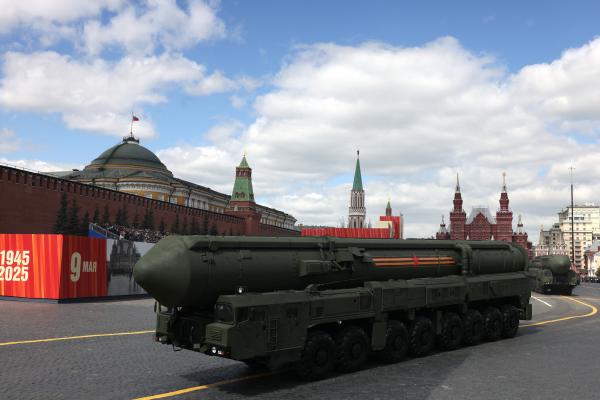
Join Assistant Secretary of State for Arms Control and Nonproliferation Dr. Christopher Yeaw for a discussion on strategic deterrence.



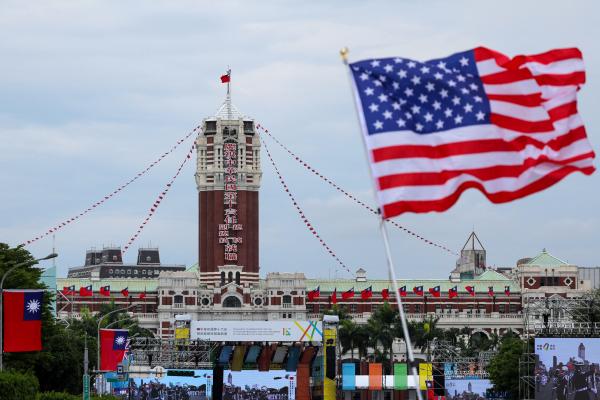
Join Hudson for an expert panel on why these deals are so important for both nations, what they mean for the future of US supply chains, and what potential challenges remain for implementing these deals.
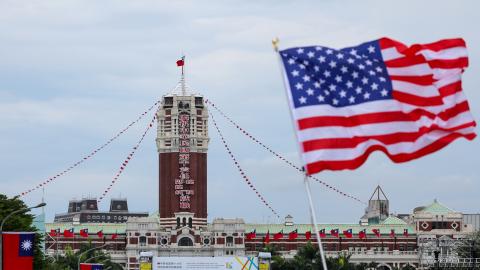
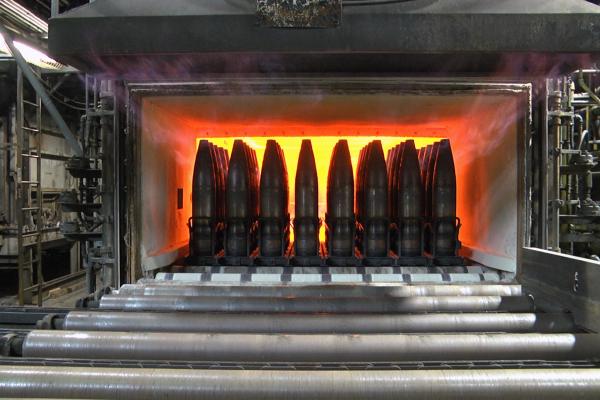
Join Hudson for a conversation with Assistant Secretary of War for Industrial Base Policy Michael Cadenazzi, who leads the DoW’s efforts to develop and maintain the US defense industrial base to secure critical national security supply chains.

